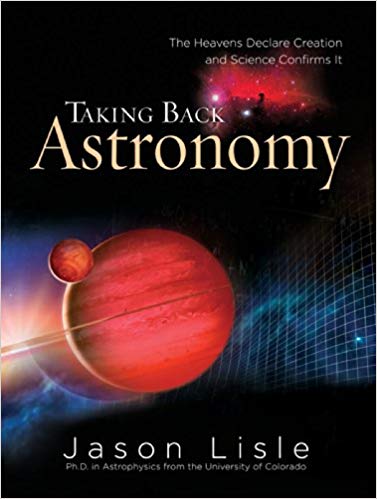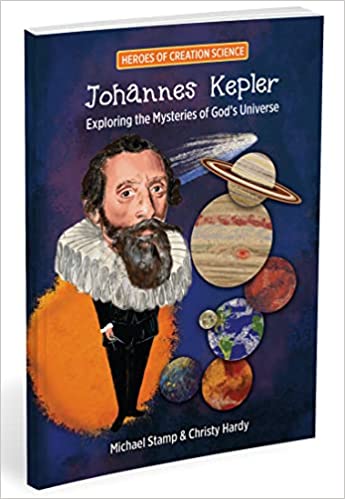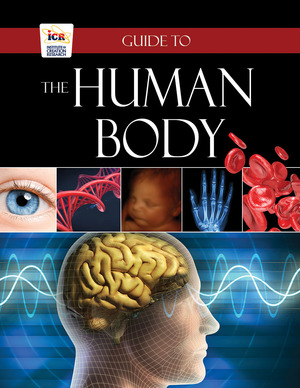Dr. John Byl’s keynote lecture at Creation Weekend on the evening of Saturday, October 21, 2017 was entitled “Has Science Killed God? Christianity vs. Naturalism.” Many people in our modern society, Dr. Byl declared, believe that science can explain everything, so that God is not needed. These people accept that physical laws leave no room for God. Well then, said Dr. Byl, let us evaluate this position. He began by informing us that we must distinguish between the actual facts – the observed data – and scientific theories that are constructed to explain facts.
In many cases, Dr. Byl pointed out, observations from nature lead to very uncertain conclusions. For example, consider the case of galactic red shifts. When a star or a galaxy’s light is spread out into a spectrum showing all the colours of the rainbow, black lines are observed at various wavelengths. The pattern of the lines identified at first were found to be characteristic of the light observed when hydrogen is burned and the light is viewed through a prism. The conclusion was drawn that many stars burn primarily hydrogen. However astronomers also observed spectra where the pattern of lines typical of hydrogen burning seemed to be shifted over into red wavelengths of light (less energetic).
Naturally astronomers wondered why we were seeing a redshift in the spectral lines. Dr. Byl noted that a number of explanations have been published in the scientific literature. Each explanation has different implications for the nature of the universe. Among the explanations are galaxies moving away from us; galaxies embedded in expanding space; a large mass at the end of the universe; decreasing speed of light; shrinking atoms; and tired light. What this example demonstrates is that for any data set, you can develop various hypotheses. One philosopher of science, Carl Hempel (1905-1997), declared that the transition from data to theory requires constructive imagination! This does not exactly instill confidence in the ability of scientists to explain anything about the universe! Which theory is the right one? Unhappily, science has no valid criterion to distinguish true theories from false ones, so scientists favour theories that best fit their worldview.
Dr. Byl provided us with another amusing example. This time from very recent studies. In 2010 a newly observed star, Gliese 581g, was said to be so earth-like that alien life was certain to exist on it! Even more recently, it was discovered that the “observation” of the planet resulted from a data glitch, and the planet most probably does not even exist.
Often very far-reaching conclusions about the nature of our universe are developed by scientists based on very little evidence. Once a theory has achieved favoured status, like the Big Bang, new modifying assumptions are widely adopted to “save the theory at all costs” in the face of conflicting observations. For example, a recent article in European Physical Journal H https://doi.org/10.1140/epjh/e2017-80048-5 by Jayant V. Narlikar (2018) lists seven new unsupported assumptions adopted since 1989 to save the Big Bang (p. 23). Thus he summarizes: “[D]espite the popularity of the standard hot big bang cosmology [SBBC] it rests on rather shaky foundations. On the theoretical side there is no well-established physical framework to support the SBBC; nor is there independent observational support for its assumptions like nonbaryonic dark matter, inflation and dark energy.” (p. 1)
Naturalism is at heart materialistic, and thus denies such things as purposeful self, an effective mind, and objective rational and moral standards. However, since the defense of any worldview must presume all these, this entails that the defense of naturalism is self-refuting.
Indeed, if there is no purpose to the universe, as naturalists claim, why should we even do science? Even the most atheistic scientist has to assume that the universe is not absurd. Moreover, science relies heavily on mathematics. The physical universe seems to have a deep mathematical structure; physical laws have a large mathematical component. Thus, if these laws are held to be true, this suggests the existence of mathematical truths. But materialism has no place for such an abstract realm.
In short, science needs a viable worldview, which naturalism does not supply. Christians on the other hand, do have a cohesive worldview. We have a reliable standard for truth, the Bible. We understand that God created the world according to a rational plan, and therefore we can expect it to have a mathematical structure. Since we are created in God’s image, we can discern the structure. Christianity provides meaning and hope, and a standard by which to evaluate everything.
Previously, on Saturday morning, Dr. Byl’s opening address considered “Do we need the Biblical Adam?” Dr. Byl noted that this question is closely related to the essentials of the Christian faith. Mainstream science challenges Christians to re-evaluate this topic in the light of evolutionary conclusions. Quite a number of well-known theologians now agree that man has evolved over millions of years. For example, Dr. Bruce Waltke insists that Christians need to be credible in the eyes of the world and that our credibility will be reduced to cult status if we deny evolution.
But Dr. Byl insisted that Christians should not be so easily budged from their Biblical position. Citing a number of verses, he declared that the Bible treats Adam as historical. Once you adopt evolution, he declared, many doctrines change. For example, evolution cannot account for our soul, since material processes cannot produce an immaterial entity. Note Ecclesiastes 12:7 “the spirit returns to God who gave it.” Neither the soul nor God fit with natural processes. Dr. Byl discussed a number of other issues such as the origin of natural evil, which the Bible declares followed man’s fall into sin. If death was already present in the world as a result of the births and deaths of countless generations of creatures, then the fall changed nothing.
Some people may claim that Christians need to support evolution in order to look good in the eyes of the world. The fact is however that for many non-Christians, miracles such as the virgin birth and the resurrection, will never be credible. Dropping Adam undermines Biblical authority and impresses few people anyway.
April 2018
Subscribe to Dialogue







